
JOURNAL OF DEVELOPMENTAL AND BEHAVIORAL PEDIATRICS
Scope & Guideline
Championing research for the next generation's growth.
Introduction
Aims and Scopes
- Developmental Disorders and Disabilities:
The journal places a strong emphasis on research regarding various developmental disorders such as Autism Spectrum Disorder (ASD), Attention-Deficit/Hyperactivity Disorder (ADHD), and other neurodevelopmental conditions. It explores diagnosis, treatment, and long-term outcomes for affected children. - Impact of Socioeconomic and Environmental Factors:
Research published often examines how socioeconomic status, family dynamics, and environmental influences (like the COVID-19 pandemic) affect child development and behavior. This includes studies on food insecurity, access to care, and the role of community resources. - Innovative Diagnostic and Treatment Approaches:
The journal features studies on novel diagnostic tools and treatment methods, including telehealth solutions and community-based interventions, aimed at improving care delivery for children with developmental and behavioral issues. - Parent and Caregiver Engagement:
A significant focus is placed on the role of parents and caregivers in the developmental process, including their experiences, perceptions, and the impact of their mental health on child outcomes. - Interdisciplinary Collaboration:
The journal promotes research that fosters collaboration among various disciplines within pediatric care, including psychology, education, and public health, to enhance the overall health and development of children.
Trending and Emerging
- Telehealth and Remote Assessments:
The rise of telehealth, particularly during and after the COVID-19 pandemic, has led to increased research on its effectiveness in delivering developmental and behavioral services, including diagnostic evaluations and therapy. - Impact of the COVID-19 Pandemic:
A notable trend is the exploration of how the pandemic has affected child development, mental health, and educational outcomes, with studies addressing stressors and adaptations in care. - Focus on Resilience and Family Dynamics:
Emerging research emphasizes the importance of resilience in families and children, examining how family support systems and dynamics influence developmental outcomes. - Use of Technology in Interventions:
There is a growing interest in the application of technology, such as apps and online platforms, in behavioral interventions and assessments, reflecting the integration of digital solutions in pediatric care. - Cultural Competency in Care:
An increasing number of studies are addressing the need for cultural sensitivity and competency in pediatric care, recognizing the diverse backgrounds of families and their unique challenges.
Declining or Waning
- Traditional Behavioral Interventions:
While foundational, traditional behavioral interventions for developmental disorders are becoming less emphasized as new, more integrative approaches gain traction, such as those incorporating technology and telehealth. - Single-Disorder Focus:
Research focusing solely on a single developmental disorder is declining in favor of studies that consider comorbidities and the interconnectedness of different conditions, reflecting a more holistic view of pediatric health. - General Pediatric Health Issues:
There appears to be a waning interest in broader pediatric health issues not directly related to developmental and behavioral concerns, as the journal narrows its focus on specialized topics within the field.
Similar Journals
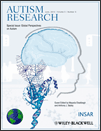
Autism Research
Advancing knowledge, transforming lives in autism research.Autism Research, published by WILEY, is a premier academic journal dedicated to advancing the understanding of autism spectrum disorders (ASD) through high-quality research and clinical studies. With the ISSN 1939-3792 and E-ISSN 1939-3806, this journal has been integral to the field since its inception in 2008 and has been consistently ranked in the Q1 quartile across categories such as Genetics (clinical), Neurology (clinical), and various facets of Neuroscience. Holding prominent Scopus ranks, including #18 in Genetics (clinical) and #26 in General Neuroscience, Autism Research provides a vital platform for researchers, clinicians, and students alike to disseminate innovative findings and foster collaborations aimed at improving diagnosis and treatment strategies for individuals with autism. While not an open access journal, it offers a blend of insightful articles and impactful research that is essential for professionals seeking to stay at the forefront of this rapidly evolving field.

PSYCHIATRIC GENETICS
Transforming Mental Health Research through Genetic DiscoveriesPSYCHIATRIC GENETICS, published by LIPPINCOTT WILLIAMS & WILKINS, is a pivotal journal dedicated to the interdisciplinary study of genetic factors in psychiatric disorders, bridging the fields of genetics, psychiatry, and neuroscience. With a commitment to advancing research from its inception in 1990 and continuing through 2024, the journal provides a platform for innovative studies and findings that explore the genetic underpinnings of mental health. Although not currently an Open Access publication, it reaches a wide audience concerned with the complex interplay between genetics and psychiatric conditions, contributing to its Q3 and Q2 quartile rankings across multiple relevant categories in 2023. The importance of this journal cannot be understated; it serves as a crucial resource for researchers, clinicians, and students eager to uncover insights that could lead to more effective interventions and treatments in the realm of mental health.
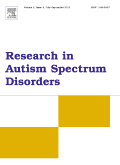
Research in Autism Spectrum Disorders
Driving the conversation forward in autism research.Research in Autism Spectrum Disorders, an esteemed journal published by ELSEVIER SCI LTD, is dedicated to advancing the understanding of autism spectrum disorders through innovative research and scholarly articles. Since its inception in 2007, the journal has carved out a distinguished place in the field, reflected in its robust 2023 Impact Factor and Q2 ranking in key categories such as Clinical Psychology, Developmental and Educational Psychology, and Psychiatry and Mental Health. By bridging the gap between research and practice, this journal serves as a vital resource for researchers, professionals, and students alike, fostering collaboration and knowledge-sharing among those dedicated to improving outcomes for individuals with autism. Featuring a broad scope that encompasses various aspects of autism research, the journal remains committed to publishing high-quality studies that drive the conversation forward in this critical area of study. Access options for the journal's content are available under the Elsevier guidelines, ensuring that pivotal research reaches a wide audience.
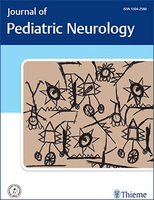
Journal of Pediatric Neurology
Exploring innovative therapies for young minds.Journal of Pediatric Neurology, published by GEORG THIEME VERLAG KG, stands as a dedicated resource in the field of pediatric neurology, navigating the complex interplay of neurological and developmental disorders affecting children. With its ISSN 1304-2580 and E-ISSN 1875-9041, this journal has been a pivotal platform for advancing research since its inception in 2003, and continues to present critical findings and discussions up to 2024. Although currently categorized in the Q4 quartile for both Neurology (Clinical) and Pediatrics, Perinatology and Child Health within Scopus rankings, the journal's commitment to fostering scholarly dialogue is essential for researchers, clinicians, and students dealing with pediatric patients. Its structured coverage of various neurological disorders, treatment strategies, and innovative therapies contributes to the broader understanding of pediatric neurology, despite the challenges noted in its ranking percentile. By encouraging submissions from diverse disciplines, the journal aims to enhance clinical practice and bridge gaps in knowledge, ensuring a multidisciplinary approach to child health and development.

Psicologia Clinica dello Sviluppo
Fostering insights that shape the future of psychological practice.Psicologia Clinica dello Sviluppo, published by SOC ED IL MULINO in Italy, is a noteworthy journal that focuses on the expansive fields of clinical and developmental psychology. Since its inception in 1998, the journal has been committed to disseminating high-quality research that bridges theoretical frameworks and practical applications within these domains. With its ISSN 1824-078X and E-ISSN 1824-078X, the journal provides a platform for scholars to explore critical issues in psychological development and clinical practice. Despite recent rankings placing it in the fourth quartile across both Clinical Psychology and Developmental and Educational Psychology categories, the journal is dedicated to fostering a growing body of knowledge that can influence policy and practice. Researchers, professionals, and students will find valuable insights in its contents, contributing to the advancement of psychology as a science and a profession. The journal accepts submissions and actively encourages contributions that tackle contemporary challenges in the field.

CHILD PSYCHIATRY & HUMAN DEVELOPMENT
Transforming Understanding of Pediatric GrowthCHILD PSYCHIATRY & HUMAN DEVELOPMENT, published by Springer, stands at the forefront of research in the fields of developmental and educational psychology, pediatrics, perinatology, and child psychiatry. With an ISSN of 0009-398X and an E-ISSN of 1573-3327, this esteemed journal has been a vital resource for academics since its inception in 1970. Currently ranked in the Q1 category across its multiple relevant disciplines, it illustrates a significant impact with its Scopus rankings, placing it within the top 13% for pediatrics and child health and the top 18% for developmental psychology. Its comprehensive scope ensures that leading-edge studies, reviews, and discourse are accessible, contributing greatly to the understanding of mental health and developmental processes in children. With no open access option, the journal maintains a commitment to high-quality, peer-reviewed content that is invaluable for researchers, healthcare professionals, and students alike, as they strive to advance their knowledge and practices in child psychology and human development.
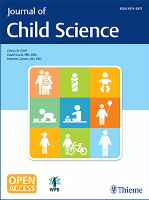
Journal of Child Science
Fostering evidence-based practices in child science.Journal of Child Science, published by GEORG THIEME VERLAG KG, is a pioneering academic journal dedicated to advancing knowledge in the fields of pediatrics, perinatology, and child health, with a special focus on surgical interventions involving children. Since its inception in 2017, this journal has endeavored to provide a platform for high-quality, peer-reviewed research that addresses critical topics related to child development and health care. With an ISSN of 2474-5871, it occupies a Q4 quartile ranking in both Pediatrics and Surgery as of 2023, demonstrating its growing presence in the academic community. Although currently non-open access, the journal aims to become a vital resource for healthcare professionals, researchers, and students interested in improving child health outcomes through informed and evidence-based practices. With a commitment to upholding rigor and integrity in research, Journal of Child Science stands as an essential avenue for discourse and discovery in child science and medicine.

Current Developmental Disorders Reports
Connecting knowledge for better mental health outcomes.Current Developmental Disorders Reports, published by SPRINGERNATURE, is a crucial resource for researchers, practitioners, and students in the fields of developmental psychology, psychiatry, and neuroscience. Since its inception in 2014, this journal has aimed to disseminate cutting-edge research on the multifaceted nature of developmental disorders, providing valuable insights into causation, diagnosis, and intervention strategies. With an E-ISSN of 2196-2987 and a notable standing in the Q3 quartile across multiple fields—developmental and educational psychology, developmental neuroscience, and psychiatry and mental health—this journal holds a significant position in the academic landscape. Researchers contributing to the journal benefit from its open access policies, stimulating knowledge sharing and dialogue within the scientific community. The journal’s commitment to advancing understanding in these critical areas of study is reflected in its rigorous publication standards and diverse range of articles, making it an essential read for anyone invested in the developments in mental health and developmental disorders.
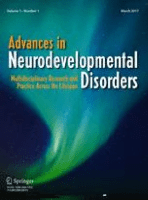
Advances in Neurodevelopmental Disorders
Uncovering Insights for a Brighter FutureAdvances in Neurodevelopmental Disorders is a leading peer-reviewed journal published by SpringerNature, focusing on the critical intersection of psychology and social sciences as they pertain to neurodevelopmental disorders. With its ISSN 2366-7532 and E-ISSN 2366-7540, this journal has carved out a significant niche since its inception in 2017, particularly recognized for its influence in academia, evident from its category quartiles in 2023, which rank it Q3 in Psychology and Q2 in Social Sciences. The journal is committed to disseminating innovative research and knowledge that advance our understanding of neurodevelopmental disorders, making it an essential resource for researchers, professionals, and students dedicated to this field. With increasing citations and a respectable Scopus ranking—#209 in Social Sciences and #46 in Psychology—the journal continues to foster interdisciplinary dialogue and scientific advancement. Based in the Netherlands and published out of London, it offers a platform for open access to significant findings and discussions related to neurodevelopmental challenges, addressing a vital area of health that impacts individuals and families worldwide.

Advances in Autism
Transforming Knowledge into Action in Autism StudiesAdvances in Autism is a prominent academic journal published by Emerald Group Publishing Ltd, dedicated to the comprehensive exploration of autism spectrum disorders through the lenses of Cognitive Neuroscience, Developmental Psychology, and Psychiatry and Mental Health. Since its inception in 2015, the journal has made significant strides in disseminating high-quality research and fostering interdisciplinary collaboration within its diverse scope. With a respectable 2023 impact factor placing it in the Q3 category across multiple relevant fields, including Neurology and Clinical Psychiatry, Advances in Autism serves as an essential resource for researchers, practitioners, and students alike, aiming to advance the understanding of autism and its related challenges. Although currently not open access, the journal provides various subscription options to facilitate widespread access to its cutting-edge insights and empirical studies, making it an indispensable tool for anyone invested in autism research.